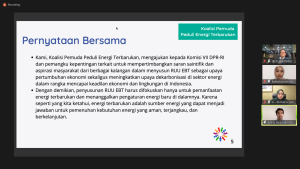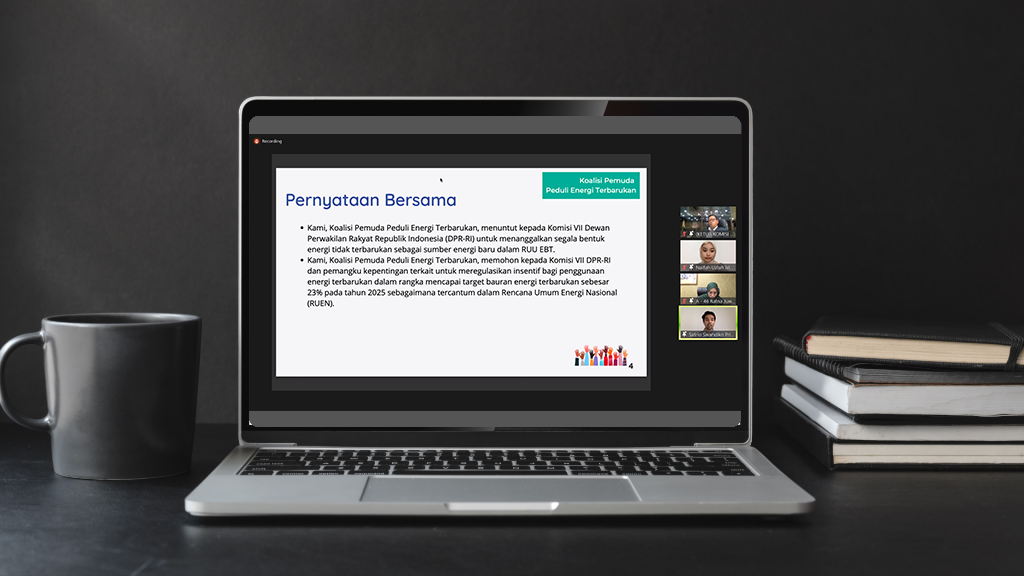Jakarta, September 29, 2021 – Indonesia has set its target on achieving a carbon neutral target by 2060 or sooner. One strategy is to use renewable energy. Encouraging the optimization of renewable energy development in Indonesia and providing a clear legal basis. The House of Representatives of the Republic of Indonesia has the initiative to draft the New and Renewable Energy Bill (EBT Bill). However, along the way, the EBT Bill still contains elements of fossil energy which has drawn protests from the Youth Coalition for Renewable Energy.
“Initially, the EBT Bill raised our hopes about the development of renewable energy as a mitigation measure for the climate crisis, but our hopes have faded because the current EBT Bill includes unclean energy sources. Here, Indonesia’s commitment to the energy transition and reducing its emissions is questionable,” explained Satrio Swandiko Prillianto, representative of the Youth Coalition Concerned for Renewable Energy at the webinar ‘Youth Aspirations for a Fair EBT Bill’, which was supported by the Institute for Essential Services Reform (IESR).
Not only that, through Satrio, this Coalition that consisting of students from various universities in Indonesia, also summarized their 3 points of objection to the EBT Bill as follows:
- The Youth Coalition Cares for Renewable Energy demands the House of Representatives Commission VII to remove unclean energy sources from the EBT Bill,
- The Youth Coalition Cares for Renewable Energy asks the government to regulate incentive regulations for renewable energy,
- The Coalition of Youth Concerned for Renewable Energy asks the government to consider scientific suggestions and aspirations of the people from various circles as an effort for economic growth and decarbonization of the energy sector.

Sugeng Suparwoto, Chairman of Commission VII DPR RI on the same occasion stated that the long process of making the New Renewable Energy Law has now reached the synchronization stage in the legislative body of the DPR RI. It is planned that this law will be completed by the end of 2021. He explained that this bill is important to deal with energy problems in Indonesia.
“Our fossil energy reserves are low, besides that it is also polluting because it produces high carbon emissions, so we need to switch to renewable energy and need a strong legal basis for the development of the ecosystem,” explained Sugeng.
Although the EBT Bill is not yet perfect, Ratna Juwita Sari, a member of Commission VII DPR RI believes that this EBT Bill will ensure that the energy system in Indonesia to be strong, independent, sufficient, affordable, fair and sustainable, and clean.
“We are aware that some articles still raise pros and cons, such as the chapter on nuclear, but the impact of this bill socially, economically and environmentally will be large and good,” explained Ratna.

